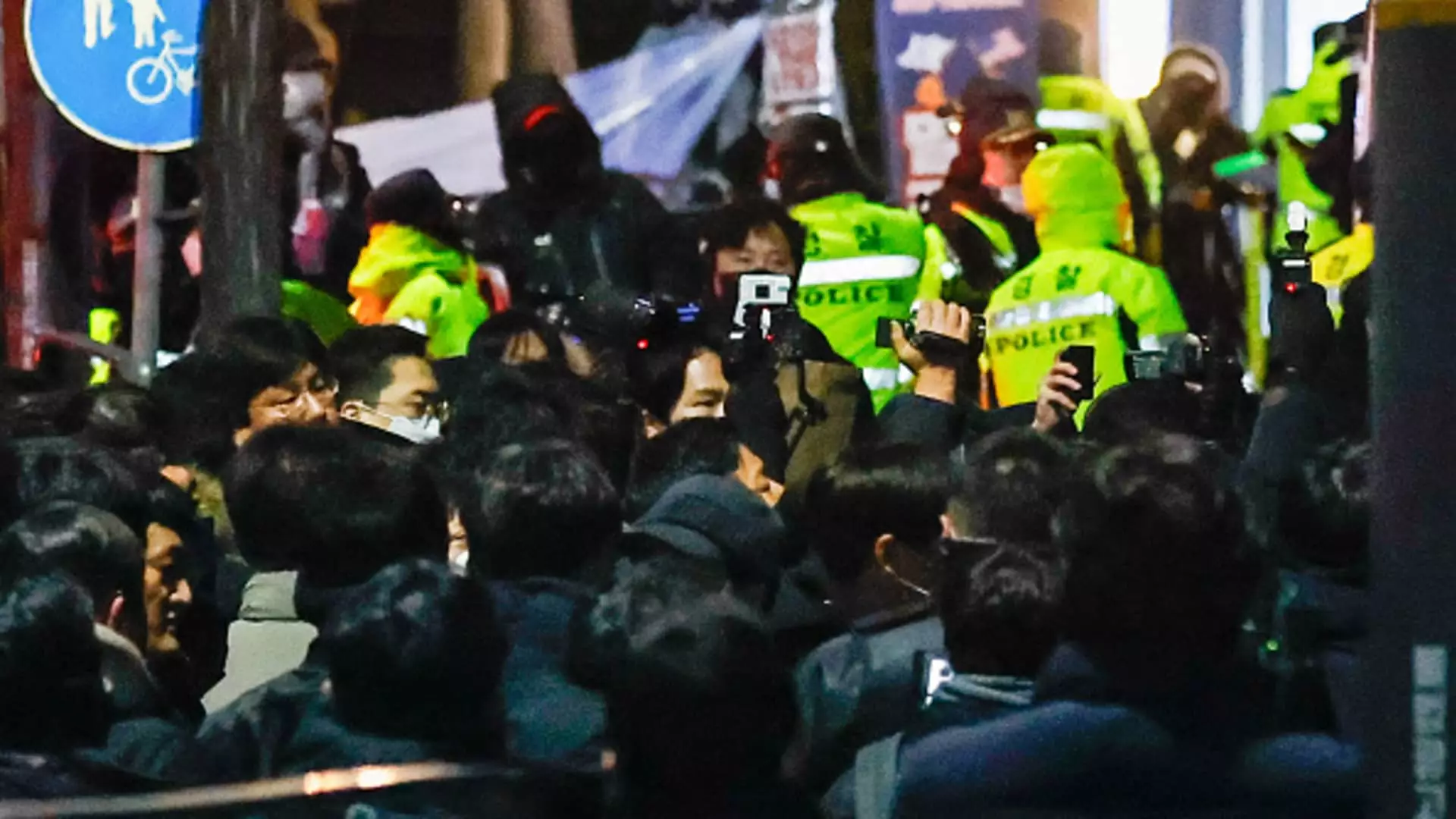In a striking turn of events, South Korea’s political landscape has been dramatically reshaped with the reported arrest of President Yoon Suk Yeol by the country’s Corruption Investigation Office (CIO) for High Ranking Officials. This incident marks a historic first: a sitting South Korean president facing arrest. The ripple effects of this unprecedented action destabilize not just the Yoon administration but also the nation’s view of accountability at the highest levels of government.
The arrest was not spontaneous; it followed a failed attempt earlier in January when Yoon’s security personnel barred investigators from entering his residence. The subsequent operation involving approximately 3,000 police officers to secure access underscores the significant tensions surrounding these developments. Such actions reflect not only the gravity of the situation but also highlight the potential erosion of trust between government officials and law enforcement agencies.
In a pre-recorded video statement, President Yoon expressed outrage about the investigation, asserting that “the law of the country has collapsed.” He characterized the CIO’s inquiry as illegitimate and foresaw possible “unpleasant bloodshed” should he not cooperate. This argument raises concerns about his leadership and the legitimacy of his claims. Such a statement can be interpreted as an attempt to rally support amidst growing dissent and fear of potential civil unrest.
Additionally, the market’s tepid reaction to the arrest underlines the anxiety permeating the South Korean economy. While the Kospi index experienced a modest increase, the small-cap Kosdaq showed a decline, reflecting investor nervousness regarding political instability. The currency market also responded, with the South Korean won showing signs of weakness against the U.S. dollar.
Yoon Suk Yeol’s current legal tribulations stem from allegations of insurrection, specifically relating to his controversial declaration of martial law on December 3. This move was justification purportedly employed to ward off “North Korean communist forces” and other perceived threats to the state. The martial law declaration marked the first of its kind in over four decades in South Korea and was quickly contested by parliament members who managed to intervene and dismiss the decree. They subsequently lodged impeachment motions against Yoon, resulting in his suspension from office.
The gravity of the charges against Yoon cannot be understated. Accusations of insurrection carry severe repercussions, including the possibility of the death penalty. His impeachment trial, which began on January 14, presents an uncertain fate for the embattled leader, especially in light of his absence during critical proceedings.
As South Korea grapples with this unprecedented crisis, the implications stretch well beyond Yoon’s presidency. The current situation raises fundamental questions about the resilience of democratic institutions in the country. South Koreans now find themselves at a crossroads where accountability for leadership is being tested in real-time. The unfolding events serve as a reminder of the delicate balance between governance, public trust, and legal authority in any democratic nation.
The path forward for Yoon and South Korea remains unclear, yet what is evident is that the political landscape has shifted irreversibly. This episode won’t just define the remainder of Yoon’s term but also shape future political discourse in South Korea. Citizens and officials alike are left to ponder: how to rebuild trust in a system that has witnessed such extraordinary events in its own political history.



Leave a Reply